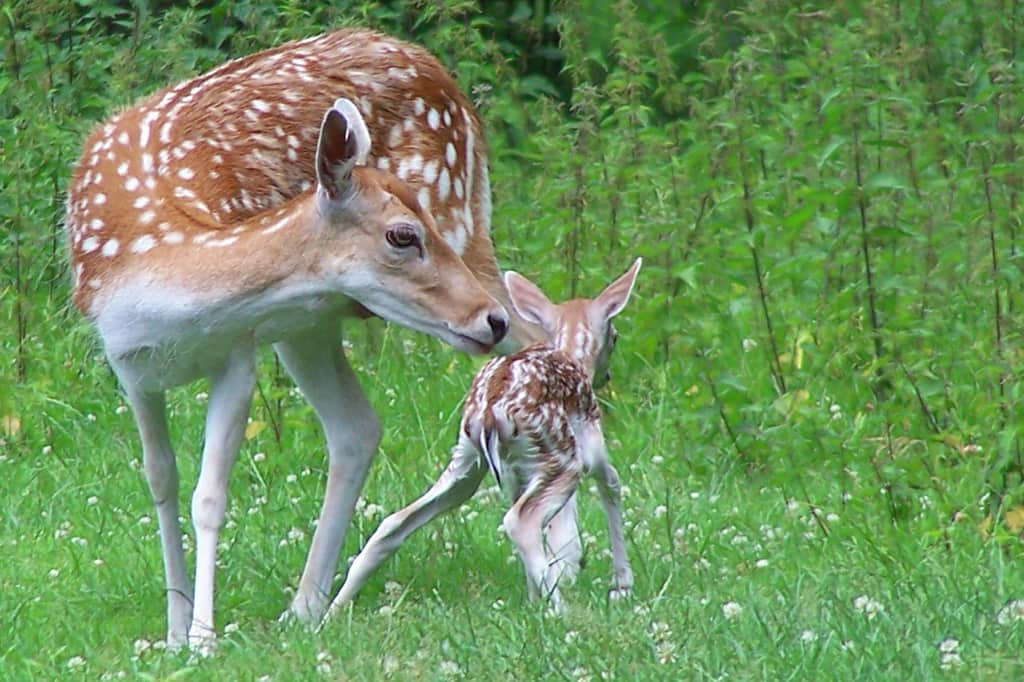Study Finds Mother Deer Raise Dominant Bucks with Special Care
OutdoorHub Reporters 03.08.13

A study by researchers at Brigham Young University found that doe give special care to newborn “dominant” male deer. According to redorbit.com, the study led by student Eric Freeman proposes that mother cervids instinctively recognize whether or not they are carrying strong male offspring during pregnancy. Special measures are then taken by the doe to provide the best health for herself and her baby.
Pregnancy for female deer is often a balancing act of resources. When food is sparse, doe will often delegate resources to keep themselves healthy and to ensure the possibility of future offspring. In times of plenty doe will focus their energy on producing larger and healthier young. The study reports that deer use this ability to give an advantage to unborn bucks in the hope of giving the male a leg up on the competition.
When the male is born the mother will continue to give him preferential treatment. The first few years spent with the mother greatly influences the fawn’s future success.
“Our research demonstrates clearly that a mother’s investment in her offspring was evident during adulthood, even though offspring live independently of their mothers from a very young age,” said Brock McMillan, an associate professor with the study.
This special attention increases the newborn male’s chances of survival and eventual dominant position in the herd, as well as passing on stronger genetics.
The researchers studied a multitude of deer species from Montana, Colorado, Nevada, New Mexico and Wyoming. The team gathered data from the antlers harvested in these areas by hunters and quantified their findings against environmental factors from when the deer was born.

